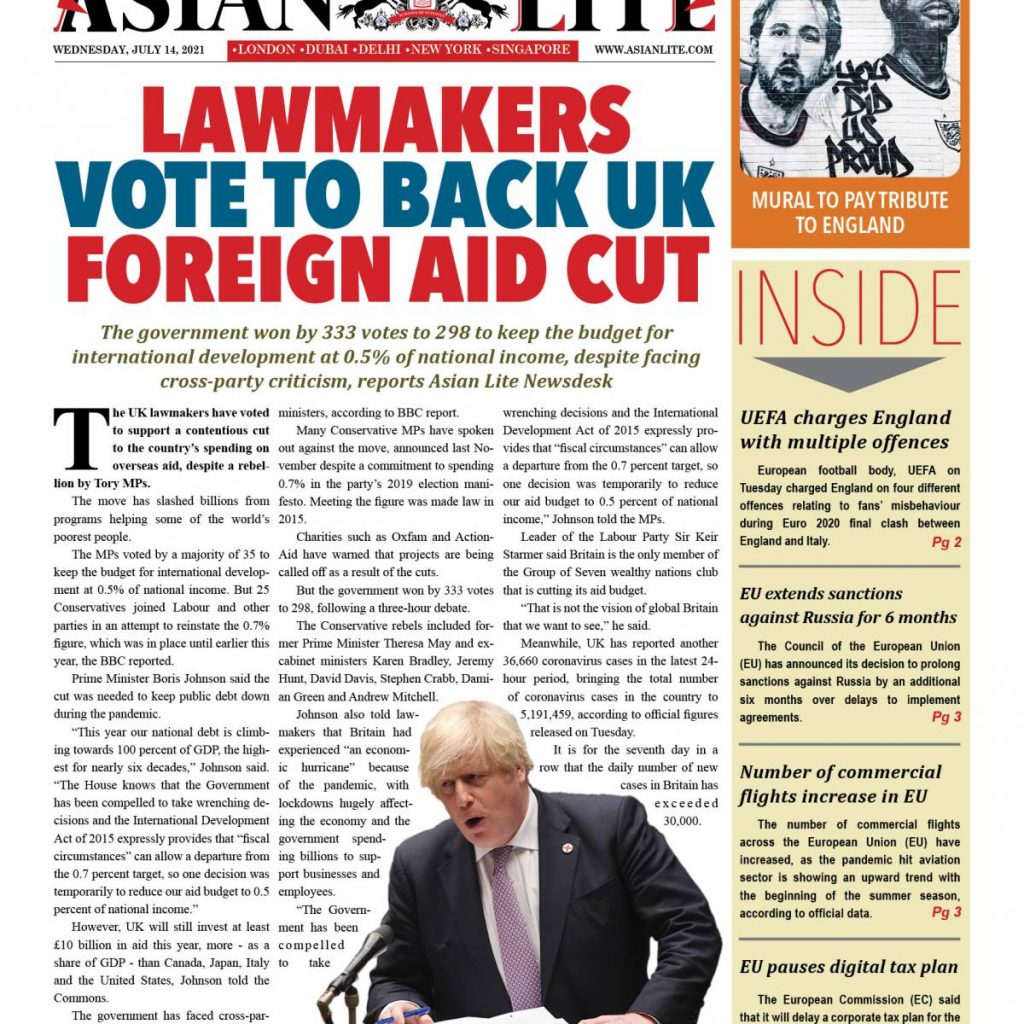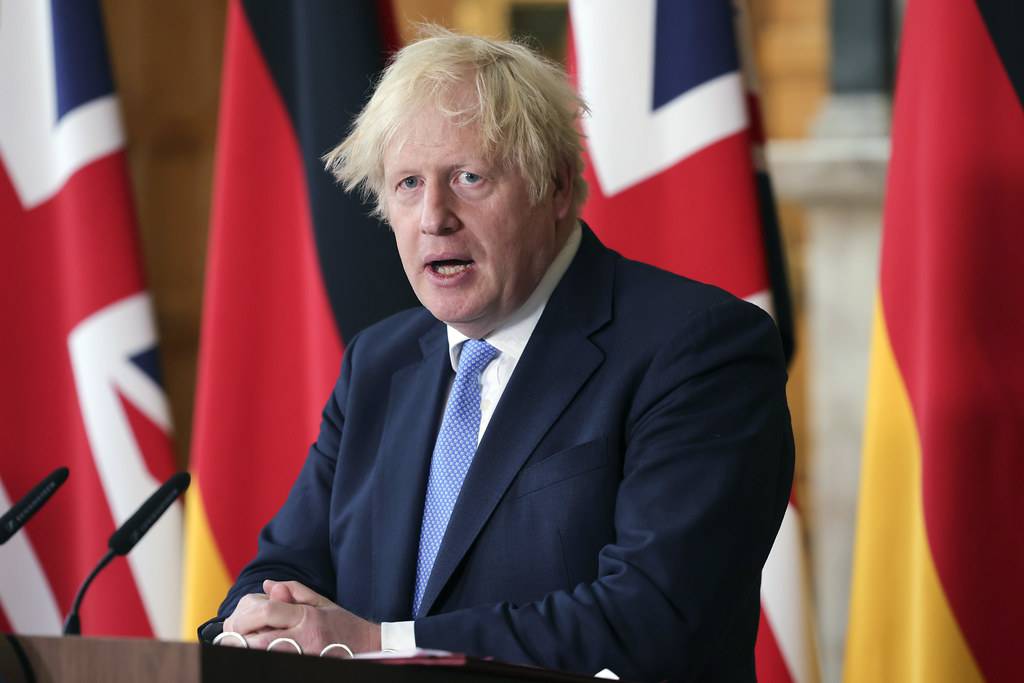The government won by 333 votes to 298 to keep the budget for international development at 0.5% of national income, despite facing cross-party criticism, reports Asian Lite Newsdesk
The UK lawmakers have voted to support a contentious cut to the country’s spending on overseas aid, despite a rebellion by Tory MPs.
The move has slashed billions from programs helping some of the world’s poorest people.
The MPs voted by a majority of 35 to keep the budget for international development at 0.5% of national income. But 25 Conservatives joined Labour and other parties in an attempt to reinstate the 0.7% figure, which was in place until earlier this year, the BBC reported.

Prime Minister Boris Johnson said the cut was needed to keep public debt down during the pandemic.
“This year our national debt is climbing towards 100 percent of GDP, the highest for nearly six decades,” Johnson said. “The House knows that the Government has been compelled to take wrenching decisions and the International Development Act of 2015 expressly provides that “fiscal circumstances” can allow a departure from the 0.7 percent target, so one decision was temporarily to reduce our aid budget to 0.5 percent of national income.”
However, UK will still invest at least £10 billion in aid this year, more – as a share of GDP – than Canada, Japan, Italy and the United States, Johnson told the Commons.
The government has faced cross-party criticism over the reduction – which amounts to almost £4bn – including from all the UK’s living former prime ministers, according to BBC report.
Many Conservative MPs have spoken out against the move, announced last November despite a commitment to spending 0.7% in the party’s 2019 election manifesto. Meeting the figure was made law in 2015.
Charities such as Oxfam and ActionAid have warned that projects are being called off as a result of the cuts.
But the government won by 333 votes to 298, following a three-hour debate.
The Conservative rebels included former Prime Minister Theresa May and ex-cabinet ministers Karen Bradley, Jeremy Hunt, David Davis, Stephen Crabb, Damian Green and Andrew Mitchell.
Johnson also told lawmakers that Britain had experienced “an economic hurricane” because of the pandemic, with lockdowns hugely affecting the economy and the government spending billions to support businesses and employees.
“The Government has been compelled to take wrenching decisions and the International Development Act of 2015 expressly provides that “fiscal circumstances” can allow a departure from the 0.7 percent target, so one decision was temporarily to reduce our aid budget to 0.5 percent of national income,” Johnson told the MPs.
ALSO READ-Bill Gates and others pledge $140m to cover UK foreign aid cut
READ MORE-UK bans US-based white supremacist group under terror laws

